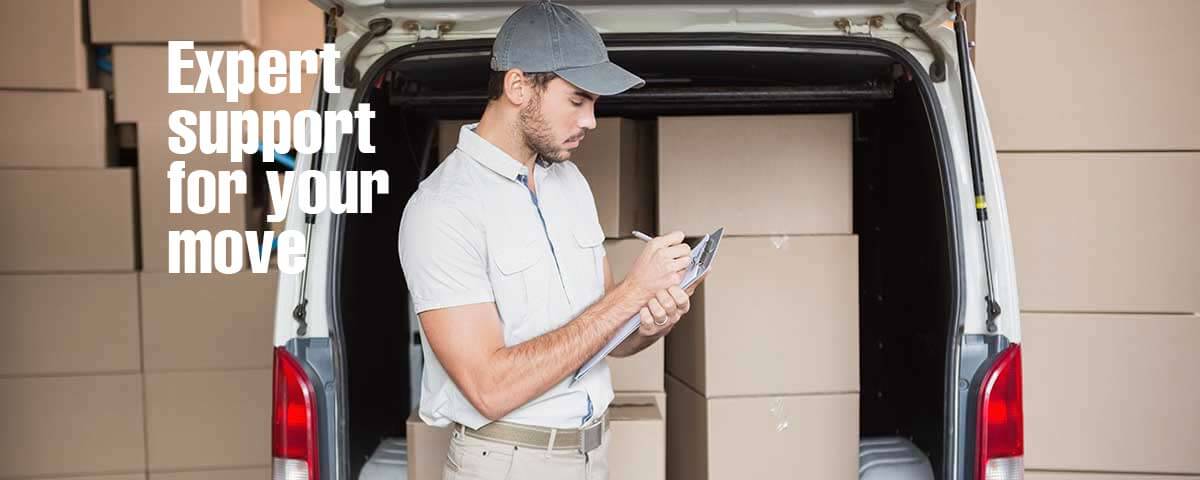Packing Secrets to Make Your Move Smooth and Easy
Posted on 29/05/2025
Packing Secrets to Make Your Move Smooth and Easy
Moving can be both exciting and overwhelming. The secret to a smooth transition lies in efficient packing and careful planning. If you're searching for the most effective packing techniques and clever moving tips, you're in the right place! This extensive guide will reveal everything you need to know about packing and moving like a pro.
The Importance of Packing for a Successful Move
Many people underestimate the significance of smart packing. Poorly-packed boxes can lead to damaged belongings, lost items, and a stressful unpacking process. In fact, efficient packing is the foundation of a smooth and easy move. When your items are well-organized, the entire moving process -- from loading to unloading and unpacking -- becomes a breeze.

Essential Packing Supplies Every Mover Needs
Before you can start packing, it's crucial to gather all necessary supplies. Here's an essential checklist to make your move easier and faster:
- Sturdy cardboard boxes: Choose various sizes for different items.
- Plastic bins: Reusable and great for heavy or valuable items.
- Packing tape and tape dispensers
- Bubble wrap and packing paper
- Blankets or moving pads: Ideal for protecting furniture and delicate goods.
- Permanent markers and labels
- Scissors and box cutters
- Ziploc bags: For small parts and screws.
- Trash bags: For last-minute odds and ends, or donations.
Packing Secrets to Effortless Moving
Unlock these packing secrets to ensure your relocation is smooth, quick, and stress-free.
1. Start Early - The Early Bird Packs Best!
One of the greatest secrets to a smooth packing experience is to start as early as possible. Last-minute packing leads to mistakes, missing items, and chaos. Begin by packing items you rarely use, such as seasonal decorations, books, or fine china. Creating a timeline or checklist helps you pace yourself and reduce moving day anxiety.
2. Declutter Before You Pack
_The fewer items you have, the less you need to move!_ A successful move often starts with a purge. Sort your belongings into categories: keep, sell, donate, and discard. Organizing a yard sale or donating to charity not only lightens your load but can save money on packing supplies and moving fees.
- Tip: Be ruthless. If you haven't used it in a year, it's probably safe to let go!
3. Room-by-Room Approach
For a smooth and organized move, pack one room at a time. Label each box with its contents and the room it belongs to. This simple technique allows movers -- and you -- to easily identify where each box should go in your new home.
- Tip: Color-code boxes with markers or colored tape for even easier sorting.
4. Use High-Quality Packing Materials
Don't skimp on supplies. Strong boxes and proper cushioning materials protect your possessions. Invest in specialty boxes for delicate or valuable items (e.g., wardrobe boxes, dish pack partition kits, or TV/mirror boxes).
5. Master the Art of Efficient Box Packing
Avoid overloading boxes, which may break or be too heavy to lift. Instead, fill box bottoms with heavier items (books, plates) and lighter ones on top (linens, light decor). Fill gaps with packing paper or clothing to stabilize contents -- this prevents shifting and breakage during the move.
- Always tape boxes securely and reinforce bottoms for added strength.
6. Protect Fragile Items Like a Pro
Packing fragile items is one of the biggest moving challenges. Use bubble wrap, packing paper, or towels to cushion each piece. Wrap items individually and pack tightly to avoid movement. Clearly label boxes as "FRAGILE" for extra care during the move.
- Tip: Consider dish pack boxes with partitions or double-boxing your most delicate items for extra protection.
7. Keep Essentials Handy
During your move, you don't want to sift through boxes looking for your toothbrush or phone charger. Pack an "essentials box" or bag with items you'll need immediately, such as:
- Personal care items (toothbrush, medications, contact lenses)
- Phone and device chargers
- Snacks and bottled water
- A change of clothes
- Paper towels and basic cleaning supplies
- Important documents (passports, moving contracts, etc.)
8. Label Everything Clearly and Consistently
Proper labeling is a key packing secret to a seamless move. Each box should list:
- Destination room (e.g., Kitchen, Master Bedroom)
- General contents (e.g., "Cookware and utencils")
- Special handling instructions ("Fragile," "This Side Up")
Well-labeled boxes save time and frustration when you arrive at your new home.
9. Take Photos and Make Inventory Lists
Before sealing boxes, snap quick photos of valuable or complex items (like the back of your TV setup). A detailed inventory helps you track what's in each box and is invaluable for insurance purposes in case of damage or loss.
10. Don't Forget Special Items and Moving Regulations
Certain items need extra attention -- or may not be allowed in the moving truck:
- Hazardous materials: Movers typically won't transport chemicals, gasoline, or flammable products.
- Perishables: Either use up or properly dispose of frozen and refrigerated foods before moving day.
- Valuables: Carry priceless jewelry, cash, or important documents with you, not in the moving truck.
>>> Advanced Packing Strategies for a Smoother Move
Use What You Have as Packing Material
Let your soft household goods -- like towels, blankets, and socks -- double as padding for breakables. Tuck socks into glasses, and wrap fragile decor in bath towels for extra cushioning without extra expense.
Optimize Moving Box Size and Weight
Heavier items belong in smaller boxes, while lighter, bulkier items can go in large boxes. A well-packed box shouldn't weigh more than you can safely lift -- usually under 40 lbs for most people.
Utilize Suitcases and Duffel Bags
Your rolling luggage isn't just for travel! Suitcases are perfect for packing books and other heavy items, making them easier to transport.
Disassemble Furniture Carefully
When possible, take apart large furniture (tables, bed frames) for an easier move. Keep screws and small parts in labeled zippered bags and tape them securely to the frame or an obvious part of the furniture.
Wrap Drawers and Leave Clothing Inside
If drawers aren't too heavy, leave clothing in place and wrap the entire set with durable plastic wrap. This saves time on unpacking and keeps garments clean and organized.
Make Use of Vacuum-Seal Storage Bags
For clothing, linens, or bulky bedding, vacuum-seal bags minimize space and make packing easier, especially for cross-country or long-distance relocations.
Create a First Night Box or Bag
Packing a first night box ensures your first night is comfortable. Include:
- Bedding or sleeping bags
- Shower supplies and towels
- Pajamas and basic clothing
- Pet supplies, if needed
- Coffee maker or simple breakfast foods
Common Packing Mistakes -- and How to Avoid Them
Even with the best intentions, many people fall into common moving traps. Here are packing mistakes to avoid so your move is stress-free:
- Overfilling boxes: Leads to breakage and back strain. Follow the "heavy in small, light in large" rule.
- Ignoring the label: Unmarked boxes complicate unpacking and waste time at the new home.
- Packing hazardous or prohibited items: Always check what your moving company allows before moving day.
- Poor protection for breakables: Skipping padding materials is a recipe for disaster. Wrap each fragile item thoroughly.
- Forgetting to pack an essentials bag: You'll regret not having immediate access to necessities!
How to Make Unpacking as Easy as Packing
Unpacking can feel less urgent, but it's crucial to do it right. Follow these tips for an easy and efficient unpacking process:
- Unload boxes into the correct rooms (thanks to your labeling system!)
- Start with essentials, kitchens, bedrooms, and bathrooms first
- Break tasks into manageable daily goals
- Flatten and recycle moving boxes as you empty them to reduce clutter
- Enlist family or friends -- make it fun with music, snacks, and a celebratory meal
Packing for Special Situations
Packing for Long-Distance or International Moves
With long-distance or overseas moves, focus on:
- Downsizing: Limit what you bring to essentials or irreplaceables
- Double-boxing fragile valuables: Minimizes breakage during extended travel
- Research: Learn regulations regarding what's allowed in your destination country or across state lines
Packing with Children or Pets
- Prepare kids: Let them pack a "moving day" bag of favorite toys, books, and snacks
- Minimize pet stress: Keep pets in a quiet space while packing and on moving day, or arrange for pet sitting
- Pack essentials separately: Have easy access to baby supplies or pet food/water
Hiring Professional Packers vs. DIY Packing
Deciding whether to hire professional packers or do it yourself depends on your budget, time, and comfort level.
- Pros of professionals: Quick, efficient, and less daunting. Insured for damages.
- Cons: Adds to your moving costs. Less control over packing style.
- DIY: More affordable and customizable, but time-consuming and physically demanding.

Frequently Asked Questions About Packing and Moving
How far in advance should I start packing?
Begin packing non-essentials at least four weeks before your move. The earlier, the easier your move!
What packing supplies do I really need?
At a minimum: sturdy boxes, tape, markers, bubble wrap/paper, and plastic bags for hardware and small items.
Should I empty drawers and closets?
If items are light and unlikely to shift, it's fine to leave them in place and secure the drawers. Remove anything breakable or heavy.
Final Thoughts - Master the Art of Packing for a Seamless Move
The difference between a stressful move and a smooth, easy move often comes down to how well you plan and pack. With these packing secrets, you're equipped to organize your belongings efficiently, minimize stress, and start your new chapter on the right foot. Remember, every move is unique, so adapt these tips to your personal needs and circumstances -- and enjoy the exciting journey ahead!
Happy moving! For more expert tips on making your move smooth and easy, bookmark this page or share it with friends and family planning their next move.
```


